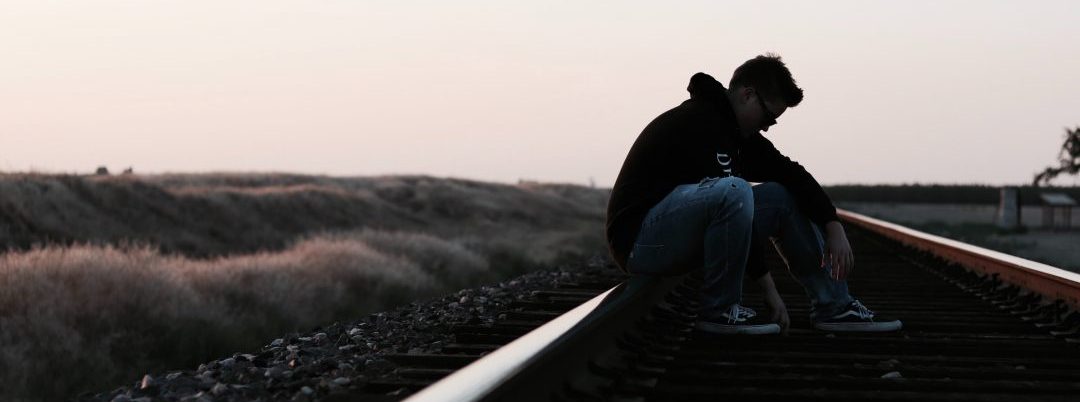
- PTSD can be divided into four phases: the impact phase, the rescue phase, the intermediate recovery phase, and the long-term reconstruction phase.
- The impact phase encompasses initial reactions such as shock, fear, and guilt.
- In the rescue phase, the affected individual begins to come to terms with what has happened.
- The intermediate recovery phase is characterized by one’s adjusting to normal life again.
- Long-term reconstruction is all about rebuilding and continuing to deal with the aftermath of the trauma.
Most of us are familiar with the term “PTSD” (or posttraumatic stress disorder), but our knowledge doesn’t extend much further. We know that it can involve frightening flashbacks and nightmares. That war veterans and assault victims are at a heightened risk of developing the illness. But do we have a clear idea of how this illness unfolds and how it might affect victims over time? If you do, great. If you don’t, you’re going to! Courtesy of myself and Dr. Sal Raichbach, a licensed clinical social worker at Ambrosia Treatment Center. “Posttraumatic stress disorder is comprised of four phases: impact, rescue, intermediate recovery, and long-term reconstruction,” Raichbach explains. “As the individual passes through these stages, symptoms can come and go. These phases aren’t fixed though, and individuals can pass from one into the other during their recovery journey.” Now, keeping that in mind, let’s delve into these four phases.
Impact
This first phase—the impact phase—typically occurs soon after the individual has experienced or witnessed the given traumatic event. It can last as little as a few hours, but may also persist for much longer, depending largely on the severity of the event. For example, someone who has lost their home in a fire may stay in the impact phase for a longer period of time, whereas an individual who witnessed a robbery may experience a shorter impact phase because they can physically escape that nightmare and return safely home. In either and any regard, affected individuals typically experience the following…
- Shock
- Fear
- Helplessness
- Guilt
- Anxiety
- Hypervigilance
Rescue
The next phase is the rescue phase, whereas the individual starts to come to terms with what has happened. This might involve returning to one’s home to assess damage or talking to other survivors—it’s about acknowledging what has happened in one capacity or another. That’s not to say, however, that one fully processes the trauma in this phase—they are still dealing with the initial shock and distress. And they typically experience a range of difficult emotions as well as mental and physical effects. These effects include…
- Denial
- Confusion
- Anxiety
- Flashbacks
- Nightmares
- Despair
- Hopelessness
- Sadness
- Anger
- Numbness
Intermediate Recovery
The intermediate recovery phase is characterized by one’s adjusting and returning to “normal” life again. Once the individual has fulfilled his or her basic safety and survival needs—which is often difficult after one has experienced this high level of trauma—they can begin to cater to other needs that emerge. In addition, this stage often involves addressing new and ongoing adversities, as well as being humbled by an outpouring of love and support or disappointed by a lack thereof. It can ultimately be broken down into two sub-stages:
Altruism: The affected individual is amazed by the support and love they receive from others. So much so that they are inspired to take action and help others, too. They might also feel uncomfortable or hesitant expressing any negativity because they don’t want to appear ungrateful for all that has been done for them.
Disillusionment: This substage is just the opposite of the previous. Rather than feeling overwhelmed by love and support, the individual feels disappointed by the lack of a response. On the flip side, one might experience the effects of this substage when the support seizes, and they realize they’re on their own to deal with the remainder of the mess.
The effects we talked about in the last phase also often continue on into this stage. One may experience physical symptoms such as fatigue and/or sleep disturbances, as well as stress reactions like irritability.
Long-Term Reconstruction
As one might assume, this phase is all about rebuilding and continuing to deal with personal post-event problems. As an individual moves into this phase, they may become concerned about their future, which can present as…
- Fear
- Resentment
- Depression
Additionally, the meaning that one assigns to the traumatic experience can have long-term effects on their mental and emotional wellbeing—which makes talking about the event and coming to terms with the trauma one has experienced extremely important, as explained by Raichbach: “If an individual’s PTSD isn’t adequately treated, the symptoms can last for years after the event. If the emotions and memories of the event aren’t processed, they can have severe mental health consequences.” He goes on to say that processing the memory with help from a mental health professional is vital to long-term recovery.
Let’s keep in touch! Sign up to receive our newsletter:
Start a Relationship with An Exceptional Counselor
- Skilled and caring professional counselors
- Accepting all major and most insurances
- High-touch customer service & premium benefits
- Same- or next-day appointments
- Ultra-flexible 23.5hr cancellations















On the 29th November 2020, I had just started work for the evening as a cab driver on the small Island where I live. It was 8PM in the evening and I was due to work all night so I had plenty of rest time throughout the day leading up to my shift.
I picked up my first passenger for the evening and was driving down a long and twisty hill towards one of the local villages when out of nowhere I hit something, I hadn’t seen anything and I was certain that a branch from one of the large overhanging trees had fallen onto my car. I instantly said to my passenger “what on earth was that?” To which he replied “I think that was a person!”, I said “no way, I would have seen a person” and I stopped the car immediately. both my passenger and myself got out of my car and sure enough there was a middle aged man behind the car on the floor. He was in a bad way and it was clear instantly that he was dead. I was well within the speed limit for that stretch of road, the weather and road conditions were good but the lighting was poor. There are no pedestrian walkways on this road and it has always been known as quite a dangerous hill particularly if you are brave enough to try and walk it, especially at night time. My instant reaction was to ring my wife, I knew my passenger was on the phone to emergency services but I went into an instant state of shock and she was the only person I wanted to speak to in that moment. I had no idea where this pedestrian had come from. My passenger agreed that the pedestrian had come from nowhere and he had not seen him either until the point of impact. A few minutes later a first aider arrived on scene, she attempted to find a pulse on the man laying on the ground but was unsuccessful. A few moments after that, the emergency services arrived and I watched them fight to bring life back into badly injured pedestrian. I have spent weeks trying to piece this together and I get nowhere, I’m in a constant state of battle in my head. I have been back to the accident scene several times and tried to reconstruct the incident to get answers as to where he came from and what happened. As I said, I live on a small island and this gentleman was well known in the community as a friendly and reliable businessman, however he was also known to be a heavy drinker with a history of suicidal ideation. On this particular evening, I am told by authorities that he had been drinking and he was heavily intoxicated. I am uncertain whether he stumbled from the hedge at the side of the road or if he jumped and this was an attempt at suicide. Either way I cannot seem to get past the guilt and anxiety linked to this, I am in a state of constant hyper vigilance and see danger in everything. This has impacted on my life and mind on ways I cannot describe. I am a father to 4 children and 5 step children (9 kids in total). This has taken a huge toll on my home life. My wife has been amazing and has fought incredibly hard to get me the right help from the right people but I just don’t feel that any of the psychologists or talk therapists that I have spoken to have a clue what is actually going on in my head, it’s more of a tick box exercise each time I see one of them. It has impacted on every aspect of my life from mental health, financial, family, work and perspective on life in general. It’s hard to tell people how I feel because it has been nearly 2 months now since the accident and everyone else’s life has gone back to normal (which is fine, it’s not their problem and they have naturally moved on) but now I’m still stuck in this same place in my head, on my own. I’m trying my best daily to be “normal” but it actually eats me up. Over the Christmas period I managed to pull myself together for the sake of the children and my wife and I think people are assuming now that I’m ok and I’m past this situation but they couldn’t be further from the truth. There isn’t really a moment where I don’t reflect on what’s happened and I seem to link everything to it. I have had soooo many dark moments, thoughts of suicide or just hiding somewhere on my own, never to be seen again. It sounds stupid but I just don’t feel like there is a future without this going through my mind and I can’t do this, I can’t live in a world where this dominates my every thought. My wife even looked at signing me up as a voluntary in-patient at a local mental health hospital but this just scares the absolute s**t out of me. I don’t feel that this would be the right path for me and the very thought of it makes me just as anxious as the situation itself. I’m completely lost, I don’t feel that I will ever be able to get past this and I feel the worst is still yet to come. I have not quite hit the point where the financial side of things has become a problem yet but it is unavoidable and I can’t get out this rut. I am just burying my head and as much as I don’t want to, there isn’t anything I can do about it. I have no motivation for life. I have considered getting a job but everyone knows what has happened (small island) and everyone is on eggshells around me, it makes me feel even worse and even more guilty but I understand this is a difficult situation for others too and people don’t know what to say to me. I could go on for hours here about the impact this has had but I still wouldn’t get anywhere. This is something I have to deal with on my own because I’m the only person in my own head. Thanks for reading
We’re so sorry to read what you’re going through. If you are struggling with suicidal thoughts, or thinking about hurting yourself or others, please seek immediate help. Call 911, go to your closest emergency room, or call the National Suicide Hotline at 1-800-273-8255. You can also visit their website at https://suicidepreventionlifeline.org. This national network of local crisis centers provides free support, and someone is always available to talk.
You can also find a list of other helpful resources here, such as the Crisis Text Line, National Domestic Violence Hotline, and more. Remember, life can get better with the right help. https://twx.atlantacounseling.com/immediate-help/
hello!,I really like your writing so so much!
percentage we keep in touch extra about your post on AOL?
I need a specialist on this house to resolve my problem.
Maybe that is you! Having a look forward to see you.
All will be well for you.